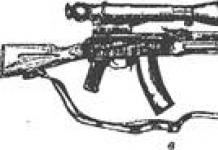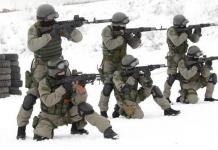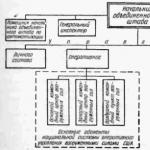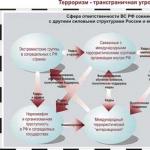Every year, at the same time, many begin to ask two questions - when will they start heating and when will they stop doing it?
It is hardly possible today to live through the winter without additional insulation of apartments, but the summer heat makes warm batteries practically useless. And although some cataclysms, such as cold summers, can affect the supply of heat, in general, the heating season is within strict limits.
What is it and how does it happen
 The heating season is a period covering the whole winter and parts of spring and autumn.
The heating season is a period covering the whole winter and parts of spring and autumn.
At this time, the premises are heated with the help of central heating pipes.
This is necessary to increase the temperature in the rooms on cold days. Previously, stoves were used for this, today central heating is used.
The latter is regulated by the "Construction Norms and Rules" or SNiP. According to its tables, you can find out about the main characteristics of heating networks and ventilation in the building.
Heating can be divided into several types by category:
- Water, air or steam. Water is the most popular, since water retains heat well and can “carry” it far enough. Steam is often used in industrial buildings that require steam. Air allows for both heating and ventilation, but it is quite expensive and rarely used.
- Seasonal or permanent: in the first case, heat enters the apartments only a few days or months a year, in the second case it is constantly maintained.
- Independent or dependent: in the first case, the water serving the building is heated by incoming warm steam or water, that is, there are two systems connected in one place - through the building and from the heat exchanger to the boiler room and back. The dependent system is a single whole: the heat is supplied directly.
- Open and closed: in the first variant, water or steam is heated in a boiler room, in the second, heating takes place in a network heat exchanger.
Heating takes place in several steps:

At the same time, it is logical to assume that on hot summer days, additional heating in an apartment building is not required: the sun perfectly warms up both the walls and the air, which means that the heating can be turned off. This will help the population save a little on utility bills, and the services themselves - to carry out inspections and repairs. This is considered the heating season - the time when heat enters the apartments.
It is worth noting: all cities have different periods of heating seasons: in the northern cities it can exceed 300 days a year, in the south it lasts a couple of months.
When the heat is turned on and off

 Previously, the heating season started on October 15 and ended on April 15.
Previously, the heating season started on October 15 and ended on April 15.
By these days, utilities were completing preparations and repairs and were completely ready for heat supply.
However, this option turned out to be unprofitable: after all, winter could come as early as September, and heat could come in March, which also corrected the heating itself.
In 2006, a law was passed providing for more flexible terms for the heating season, which depended on the temperature regime:
- heating is turned on when the average daily temperature for 5 days did not exceed +8 degrees;
- heating is turned off if this figure exceeds +8 degrees.

 To calculate the average daily temperature, observers need to know the highest and lowest temperatures of the day.
To calculate the average daily temperature, observers need to know the highest and lowest temperatures of the day.
Neither delaying the start of the season, nor heating buildings for extra days by boiler houses is unprofitable: in the first case, frosts can seriously damage idle networks, which will result in expensive repairs, in the second, the population will have to pay extra for several days when it was already warm enough.
At the same time, various factors are taken into account: the weather, the forecast for the coming days, the degree of readiness of the CHPs themselves. This may slightly move the beginning or end.
This article is part of a series of AKATO publications dedicated to debunking. Unreliable explanations, false statements, myths and false theories in various issues of housing relations, according to AKATO specialists, are detrimental to the housing and communal services of Russia, contribute to the growth of social tension, the development of "" between consumers and utility service providers. The articles of the cycle are recommended, first of all, for consumers of housing and communal services (HCS), while housing specialists can also find something useful in them. In addition, the dissemination of publications of the cycle “Housing and Public Utilities Myths” among consumers of housing and communal services can contribute to a deeper understanding by consumers of the essence of the processes in housing and communal services and the development of constructive interaction between consumers of housing and communal services and providers of such services (UO, HOA, housing cooperatives). A complete list of articles in the Myths of Housing and Public Utilities series is available
**************************************************
This article discusses the myth that supposedly the heating period begins by decision of the managing or resource-supplying organizations, as well as that before the end of the 5-day period during which the outdoor temperature is below 8 degrees Celsius, it is forbidden to start the heating period.
The essence of false theory
The false theory considered in this article can be divided into several postulates that can be applied both jointly and separately, and even in various combinations (depending on the level of illiteracy of individual adherents of such a theory):
1. Since it is the utility service provider (UO / HOA / ZHSK) that is responsible for the condition of the common house heating systems, it is this utility service provider (ICU) that makes the decision to start the heating period;
2. Since hot water for heating needs is produced by a resource supplying organization (RSO), it is such an organization that decides on the beginning of the heating period;
3. Since the tariffs and standards for the heating utility service are approved, it is these bodies that make the decision to start the heating period in the settlements of the constituent entity of the Russian Federation;
4. The heating period can start no earlier than a 5-day period has elapsed during which the outdoor temperature is below 8 degrees Celsius. If, for example, such a condition is met within 4 days, and on the fifth day the temperature exceeds the “+8” mark even for a minute, it is forbidden to start the heating season.
Let's try to refute all the false statements listed above.
When does the heating season actually start?
First, let's figure out when the heating period should begin.
According to paragraph 5 of the Rules for the provision of utility services to owners and users of premises in apartment buildings and residential buildings, approved by the Government of the Russian Federation of 05/06/2011 N354: " If thermal energy for the needs of space heating is supplied to in-house engineering systems through centralized networks of engineering and technical support, then the contractor starts and ends the heating period within the time limits set by the authorized body. The heating season should start no later than and end no sooner the day following the day of the end of the 5-day period during which respectively average daily outdoor temperature below 8 degrees Celsius or average daily outdoor temperature above 8 degrees Celsius»
Two conclusions follow from this rule:
1) The heating season should start " no later than ... the day following the day the end of a 5-day period during which ... the average daily outdoor temperature is below 8 degrees Celsius ...". The wording "no later than" means that the heating period can be started earlier than such a period (theoretically, at any time when the average daily outdoor temperature is above +8). In addition, we are talking about the average daily temperature - that is, if during the day it is +12 on the street, and at night +2, provided that the day and night periods are equal, the average daily temperature will be +7, and, therefore, the heating period should already begin (despite the fact that the daily temperature +12 is higher than the set +8). In this way, right there is a year-round start of the heating season, but duty start of such a period occurs on the day following the day of the end of the 5-day period during which the average daily temperature was below +8.
2) The utility service provider starts the heating period (that is, supplies hot water to the heating system of managed apartment buildings) on time, " established by the authorized body
". That is, the contractor himself (UO, HOA, ZhSK) does not decide on the beginning of the heating period, but is guided by the decision of a certain authorized body.
Which body is authorized to start the heating season?
In accordance with paragraph 4 of Part 1 of Article 16 of Federal Law N131-FZ of 06.10.2003 “On the General Principles of Organization of Local Self-Government in the Russian Federation” (hereinafter referred to as Law N131-FZ), the organization within the boundaries of this municipality refers to issues of local importance of a municipality electricity, heat, gas and water supply, sewerage, fuel supply to the population. According to Article 7 of the Law N131-FZ on issues of local importance, the population of municipalities directly and (or) and officials of local self-government take municipal legal acts.
From the above norms it follows that the organization of heat supply within the boundaries of the municipality refers to issues of local importance, and decisions on such issues are authorized to be made by local governments, and decisions on such issues are formalized by municipal legal acts.
Additionally, in order to avoid ambiguous interpretation of the above norms, it should be noted that paragraph 2.6.9 of the Rules and norms for the operation of the housing stock, approved by the Decree of the State Committee of the Russian Federation for Construction and Housing and Communal Complex dated September 27, 2003 N170, expressly states that the beginning of the heating season is set local authorities.
In addition, it is important to point out that in the absence of a legal act establishing the start date for the heating period, neither the RSO nor the MA / HOA / ZHSK have the right to start the heating period, even if the average daily outdoor temperature for five days was less than +8.
conclusions
It follows that the authorities to decide on the beginning of the heating period have local authorities, and not at all the RSO, not the UO / HOA / ZhSK and not the state authorities of the constituent entities of the Russian Federation (with the exception of the cities of Federal significance of Moscow, St. Petersburg, Sevastopol, in which such a decision can be made precisely by state authorities). The start date of the heating period must be not later the day following the day of the end of the 5-day period during which the average daily outdoor temperature is below 8 degrees Celsius, while start the heating period earlier end (and even start) the specified 5-day period is not prohibited by law.
Many people think that turning on and off heating is directly from the average daily temperature. However, this is only a minor factor, since the date remains the decisive factor. Let's figure out when the heating season begins and ends.
Turn off and turn on heating schedule
The timing of the start and shutdown of heating, first of all, determines the date. Naturally, if warm weather lasts for several days in December, no one will turn off the heating. In this case, they can only reduce the feed power.
But even if the temperature does not drop below normal, heating will still be turned on in early November. Also influenced by the average daily temperature outside and the temperature in the apartment.
From what date to supply heating to residential apartments and when to finish the heat supply, it is not the housing and communal services that decide, but the regional authorities. They make the schedule. However, the boundaries and limits are set by Russian law.
So, the heating season should begin in the period from 1 to 15 October. The average daily temperature should be less than +8 degrees and stay at this level for five days.

The heating season can end in mid-April - early May, provided that the average daily temperature is above +8 degrees and lasts five days in a row. However, if frosts are expected in the near future, they will not turn off the heat.
For a comfortable life in the apartment, it is important to maintain a comfortable temperature. The minimum temperature norm is set at the legislative level. But it is important to adhere to general recommendations that depend directly on the residents.
The temperature in the apartment
- The temperature norm in residential premises is at least +18 degrees, in corner rooms it should not fall below +20 degrees;
- It is desirable that the temperature in the bedrooms is not higher than 17-18 degrees. This mode will ensure a healthy and comfortable sleep;
- For kitchens, a temperature of 18-19 degrees is suitable, since a large number of electrical and heating appliances are located here. At higher temperatures during cooking, it will be very hot and stuffy here. In addition, more dirt, soot and grease will remain on the walls, furniture and ceiling. How to wash grease in the kitchen, see;
- In the bathroom, you need to maintain a temperature of 24-26 degrees, since this room is characterized by high humidity. At a lower temperature, there will be sensations of dampness and cold, mold and fungus may appear;
- Pay special attention to the temperature regime if a small child lives in the apartment. For newborns, a comfortable temperature is 22-24 degrees, for older babies it is 20-22 degrees;
- In rooms, except for the bathroom, do not exceed warming up over 22 degrees, otherwise the rooms will be stuffy and uncomfortable.

How to heat an apartment in the off-season
If the heating season has not yet arrived, and the apartment is cold, you can use additional heating methods. This is especially important if small children live in the house. In this case, fan heaters will help, which are able to heat even large areas in a short time.
To heat the room, floor or wall heating convectors or oil heaters are also used. They do not adversely affect the content and quality of the air, but dry it. In addition, such radiators consume a large amount of electricity.
Air conditioners are a suitable solution, as they are safe, rational, practical and economical. In addition, they combine the functions of cooling and heating the room, depending on the needs.

We examined at what time and at what temperature the heating is turned off and on. We learned how to heat the room in the off-season. But what to do if the time for heating has already come, but there is still no heat in the batteries?
If there is no heating in the apartment
The temperature in residential premises should not be below normal. If during the heating season the apartment has cold batteries, you need to write a complaint to the organization that serves this house. This is a housing office, an HOA or a management company.
Find an agreement with this institution, where, as a rule, the conditions for filing a complaint or claim are prescribed. In addition, applications are written to these organizations, there is no gas or electricity.
Applications are submitted in writing, where they describe in detail the problem with a request to report on the results of the consideration of the application, take measures, and also recalculate utility bills.

Be sure to make and keep a copy of the claim! The application must be accepted and registered with the ZhEK, HOA or managing organization.
After submitting an application, an expert comes to the apartment to take temperature measurements and check the condition of the plumbing in the premises. As a result of the check, he draws up an appropriate act. If the temperature is below normal, and the service company is to blame, the violations must be eliminated in 7-10 days.
If the problem is low-quality batteries that are installed in the apartment, the owner himself must replace or repair the radiators. For example, heating appliances are outdated or broken. To carry out work, it is necessary to obtain permission from the management company, housing office or HOA!
When the heating is turned off due to an emergency, additional checks and temperature measurements in the apartment do not need to be done. In this case, the service organization must restore heating in no more than 16 hours at a temperature in residential premises above 12 degrees Celsius and in four hours at a temperature below + 10 degrees.

If the deadlines are exceeded, you can demand a recalculation of the payment for heating. As a result, payment is reduced by 0.15% of the cost of the tariff for each degree of temperature deviation from the norm and by the same amount for each hour of exceeding the deadlines. To recalculate, you need to write an appropriate application and submit it to the service organization.
If the problem is not solved
If the HOA, the housing office or the management company have not taken any action, or the problem has not been resolved within two weeks after the act is drawn up, you need to file a complaint with the State Housing Inspectorate, Rospotrebnadzor or immediately with the Prosecutor's Office. Or you can send an application to three instances at once. To speed up the result, it is better to make a collective complaint of tenants.
In the application, carefully describe the problem, attach a copy of the appeal to the service organization, a copy of the act and a copy of the response of the service. In addition, you can take additional temperature measurements and check the living conditions in the apartment with the help of an independent expert.
At the end of the heating season, there are always a lot of questions. Today we will try to understand and answer everything that is really important.
- Houses with central heating: when to wait for the end of the heating season?
- Can the heating be turned off later or earlier than the specified time?
- What should be done first after turning off the heating and how to prepare for the next season?
What the law requires in 2019
There are a number of laws that are worth noting first. If your house has already installed its own autonomous heating system, then the start and end dates for heating the living space are set directly by the owner of the premises, that is, you. The disadvantage of this type of heating is that you have to pay for electricity. To bask or save - it's up to you.
If a central heating system is installed in your house, then you cannot change the date of turning off the heating in any way. The duration of the season in 2019 will depend only on external factors, that is, on the average daily temperature. Heating is usually started when +8 degrees and below can be seen on the thermometer for five days. The end of the heating season depends on the same indicators - +8 degrees and above.
In 2019, a decision was already issued to turn off heating in the following numbers:
- Moscow - April 27;
- Yaroslavl - April 28;
- Tver - April 30;
- Tula - April 29;
- Novokuznetsk - May 4;
- Moscow region - April 26.
What is really happening and who solves the problems
Of course, no one canceled the order in 2019, but in reality it is much more difficult to find out the specific numbers to complete the heating of the batteries. There are many reasons for this, here are some of the most obvious:
- CHP and heating mains are a very difficult thing. To start heating, all indicators must be brought to a certain mode established by specialists, to create the correct difference between the necessary pipelines. In the summer it is not there, if there is, it is minimal. In winter, in the heating mains, a pressure of 6-7 kgf / cm 2 was registered with a supply of 3-4 kgf / cm 2 to the reverse. Good heating of the coolant and, of course, the creation of the differential itself is impossible without certain energy resources. In addition, this process takes a lot of time. Thousands of cubic meters pass in the tracks of a small city. Therefore, it is impossible to prepare for the launch within an hour of the weatherman's forecast;
- the end of the 2019 heating season, as well as the beginning of a new one, must be accompanied by special service organizations, as the order says. Both events are associated with a sharp increase in accidents. For this reason, the personnel work plan must be planned and prepared in advance.
- When starting heating in previous years, flooding of apartments often occurs, as flushing taps can be opened, and in some cases, the connections of already dismantled radiators.
- Many people try to replace heaters with their own hands, which means that leaks in threaded, welded and fitting connections are inevitable. Unfortunately, many "masters" are simply unfamiliar with the process of crimping.
- As soon as the official notice about the start of heating has been received, a sharp wave of complaints from residents about cold heating appliances begins. The reasons for this may be different: it is possible that an apartment without tenants is empty on the floor above, or someone, perhaps, simply does not know how to use the tap.
- The end of the heating season is always and massively accompanied by leaks between the sections of cast-iron heating radiators, this can be especially often seen in old buildings, for example, in schools, gardens, hospitals. As the sections cool down, they shrink slightly in size. There are also those who have completely lost their elasticity, and this leads to an inability to retain water.


















